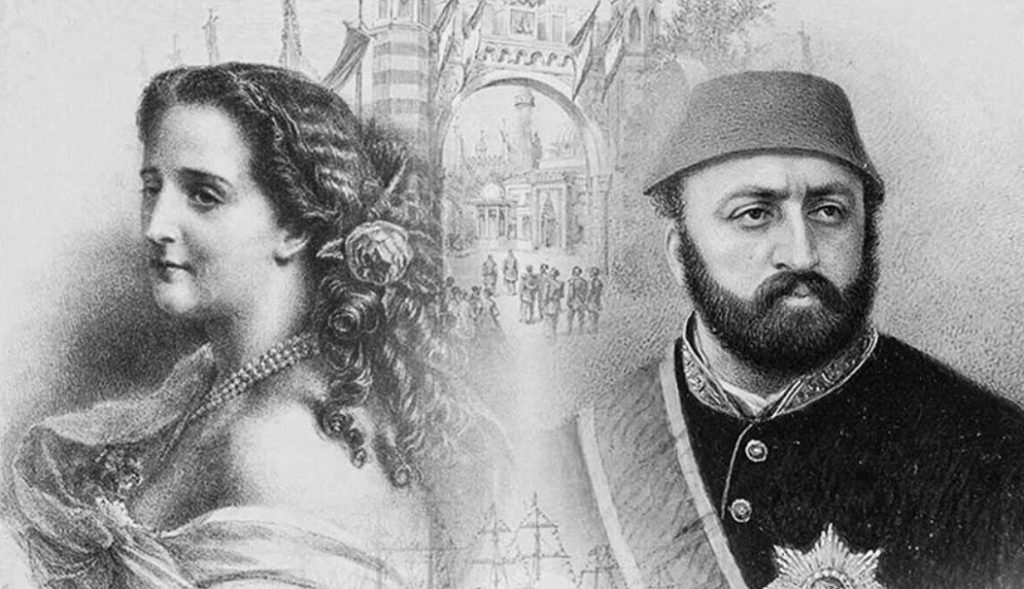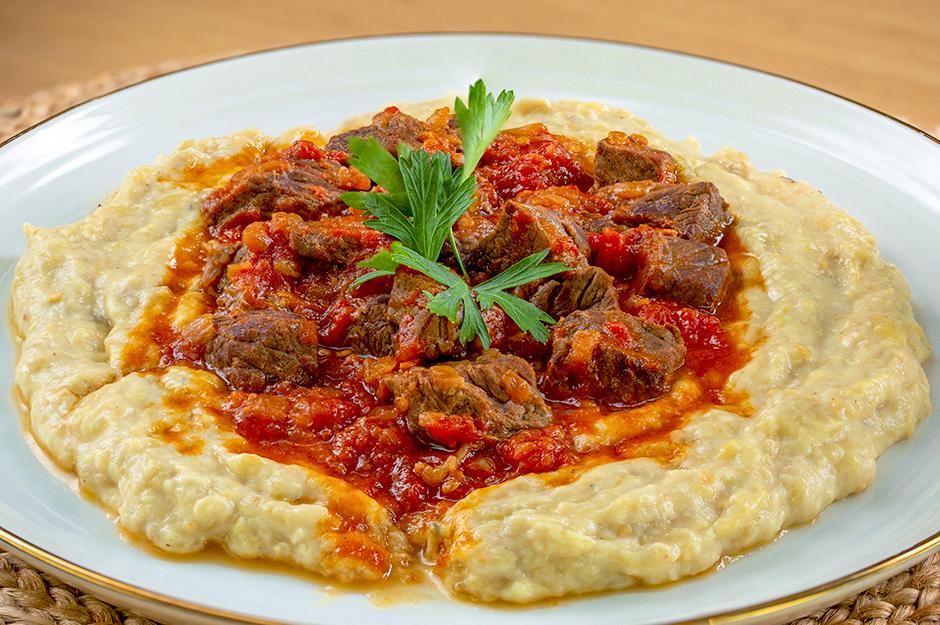As is well known, Sultan Abdülaziz was the first and only sultan of the Ottoman Empire to undertake a trip abroad. That journey not only brought us a romantic tale but also gave birth to the dish Hünkarbeğendi. Let’s go back to the year 1867, 154 years ago, when this story began.

A Captivating Encounter in Paris: When Abdülaziz Met Empress Eugénie
Sultan Abdülaziz traveled to Paris to attend an international exhibition, where he was welcomed by the host of the event, Emperor Napoleon III, and his beautiful wife, Empress Eugénie. The moment he saw the Empress, Sultan Abdülaziz was captivated. To his admiration for Paris, he now added a deep fascination for Eugénie.
Upon his return to Istanbul, Abdülaziz had left his heart in France. He found the opportunity he had been looking for in 1869, when he invited the French Emperor and his wife to the opening ceremony of the Suez Canal. Napoleon, unable to attend in person, decided to send Eugénie to Egypt. Stopping first in Istanbul by ship, Eugénie was charmed not only by the capital but also by Abdülaziz. She was received at Beylerbeyi Palace with lavish gifts, further fueling the growing affection between them. A deep love blossomed.
Eugénie had brought her personal chef with her, and she introduced Sultan Abdülaziz to a special French recipe; béchamel sauce. Her chef prepared the béchamel, and the head chef of the Ottoman palace kitchen added roasted eggplant to it. He then placed the Sultan’s favorite meat dish on top of the mixture and served it to Sultan Abdülaziz and his guest, Eugénie. The Sultan enjoyed the dish so much that it went down in history with the name Hünkarbeğendi (“Sultan’s Delight” or “Sultan Liked It”).

The Sultan was Killed, the Empress was Exiled, Hünkarbeğendi Born
As for the romance between Eugénie and Abdülaziz; Eugénie’s decision to remain in Istanbul caused scandalous rumors. One day, while she was in the harem, Sultan Abdülaziz’s mother, Pertevniyal Valide Sultan, came to her and expelled her from the palace. With a broken heart, Eugénie returned to her country, only to be met with more misfortune: her husband, Napoleon III, had been exiled. Eugénie spent 40 years in exile before deciding to return to Istanbul.
But the Sultan had long since passed away. Abdülaziz was deposed in the coup of May 30, 1876. On June 4, 1876, while held under guard in the Feriye Palace, he was found dead with his wrists cut. Official accounts recorded it as a suicide. However, in truth, Abdülaziz was the last Ottoman sultan to be deposed and killed.
This story, also told in The Palace with Blue Columns, a book by Pablo Martin Asuero, Director of the Cervantes Institute (a Spanish cultural center); features Empress Eugénie as its tragic heroine. When she returned to Istanbul, she requested an audience with Sultan Mehmed Reşad and expressed a desire to see Yusuf Izzettin Efendi, the son of her beloved Abdülaziz. It was, in fact, her final farewell to both Istanbul and her one true love. This sad story created one of the most delicious recipes in Turkish cuisine: hünkarbeğendi.

